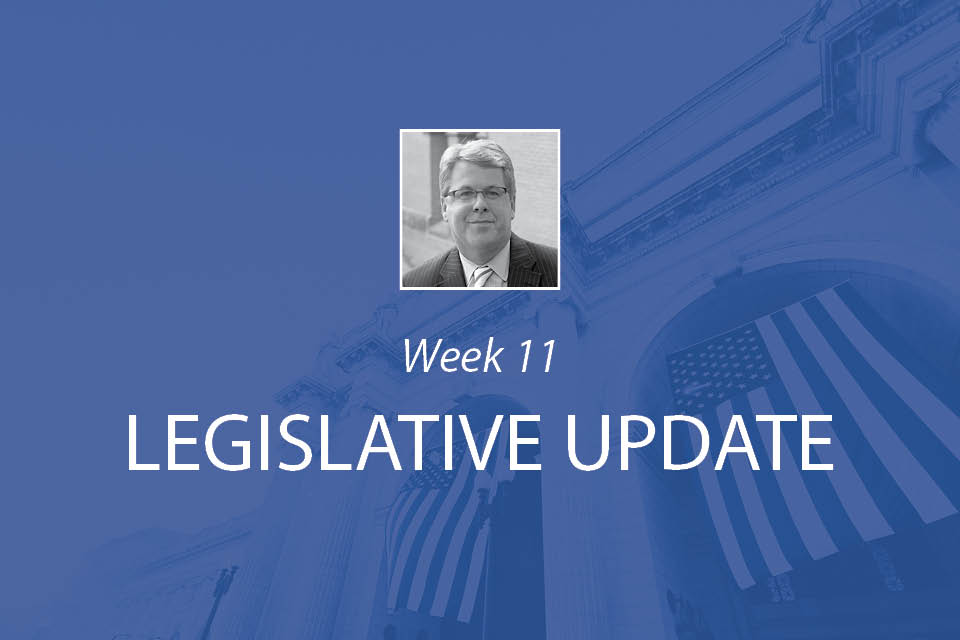Last Friday, the House of Representatives approved a comprehensive infrastructure package titled the Infrastructure Investment and Jobs Act (H.R. 3684) that passed the U.S. Senate on a bipartisan vote in August. The measure, which passed the House on a vote of 228-206 (13 Republicans voted for the bill, 6 Democrats voted against) includes over a half trillion dollars in spending on roads, ports, bridges, and rail, among other priorities. Included within the comprehensive bill that will be signed by President Biden on Monday are a few items of interest to ABMA—
- Authorization of a bioproduct pilot program to explore the use of agricultural commodities in building construction materials and products. The provision provides $4 million to the US Department of Agriculture to partner with a college or university to examine cost savings of using alternative materials, greenhouse gas emissions benefits, landfill quantity and waste management cost reduction benefits, and other factors.
- A favorable provision grandfathering existing gross vehicle weight limits on states roads converting to interstate highways. Currently in North Carolina, several state roads are slated to become federal interstates in the near future. Right now, the maximum gross vehicle weight limit on North Carolina state roads is 90,000 pounds or 5 axle trucks carrying logs and lumber. Once those roads convert to interstates, the weight limit would decrease to 80,000 pounds unless the 90,000 pound standard is grandfathered. Oklahoma has a similar state road conversion situation. Enactment of this bill addresses this issue in both states.
- Authorization of a pilot program allowing young drivers (between 18-21 years old) to operate trucks interstate after completing rigorous operational and safety training. Currently, younger drivers may drive all day every day within a state’s borders but may not cross state lines. For the last few years, the provision, known as the DRIVE Safe Act, has been a priority of truck-dependent industries as a way of attracting younger drivers to the profession. Related language was also included promoting women in the trucking workforce. Currently, only 10 percent of truck drivers on the road today are women. With the current and looming truck driver shortage, recruiting more women drivers is seen as essential.
- Language creating a new federal system for subsidizing sawmills and other wood processing facilities, along with $400 million in new financial assistance. The provision specifies that “close proximity” to a sawmill would become a factor for agencies to consider when funding federal land restoration. One of the ongoing challenges to making thinning projects economical is access to processing facilities. Existing wood processing infrastructure is not in close proximity to many federal forests that desperately need active management.
- Provisions of the Repairing Existing Public Land by Adding Necessary Trees (REPLANT) Act are included in the bill. The REPLANT Act quadruples investments to support reforestation projects on national forests by removing the current funding cap of $30 million per year on the Reforestation Trust Fund. This will help the U.S. Forest Service plant 1.2 billion trees on national forests.
- Language establishing a vehicle miles travelled (VMT) fee pilot program. Specifically, the legislation authorizes $125 million for grants that would enable creation of pilot VMT programs to collect data on whether a VMT is a viable option for replacing the gas tax to fund highway programs. The VMT would apply to both private and commercial vehicles.
- Authorization of an Electric Vehicle Working Group led by the Secretaries of Transportation and Energy to make recommendations regarding development, adoption and integration of light, medium and heavy duty electric vehicles into the transportation systems in the U.S. Language requires a report on the barriers and opportunities for scaling up electric vehicle adoption throughout the U.S., including in business vehicle fleets.
- Provisions promoting work force development in the transportation sector. Specifically, language authorizes grants to educational institutions or state departments of transportation, in partnership with industry, to develop, test and review new curricula and education programs to train individuals at all levels of the transportation workforce. Further, the new curricula and education programs will provide for hands-on career opportunities to meet current and future needs.
- A number of Buy American provisions, including language that precludes any funding in the bill on projects that use any amount of iron, steel, manufactured products, or construction materials that are not produced in the U.S.
- Efficient Manufacturing—$2.1 billion in assistance to help manufacturers improve energy, water and material efficiency, load management, and onsite generation to reduce waste and pollution while increasing profit. The provision includes a special set aside for small to medium sized manufacturing operations.
Again, the legislation will be signed into law on Monday. Both the House and Senate are in recess this week and President Biden postponed the signing ceremony so that Members of Congress who were instrumental in its development and passage could be present.




